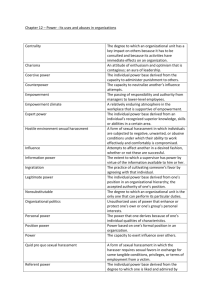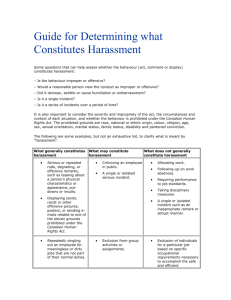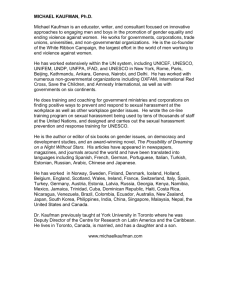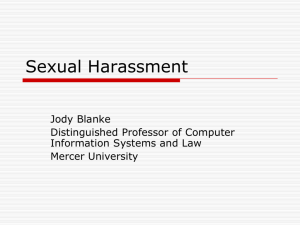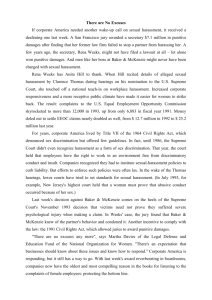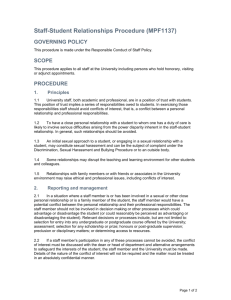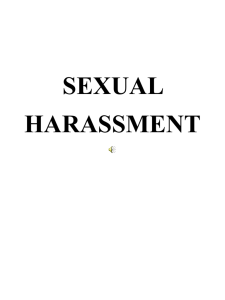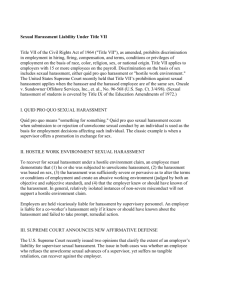Sexual Harassment Cases
advertisement
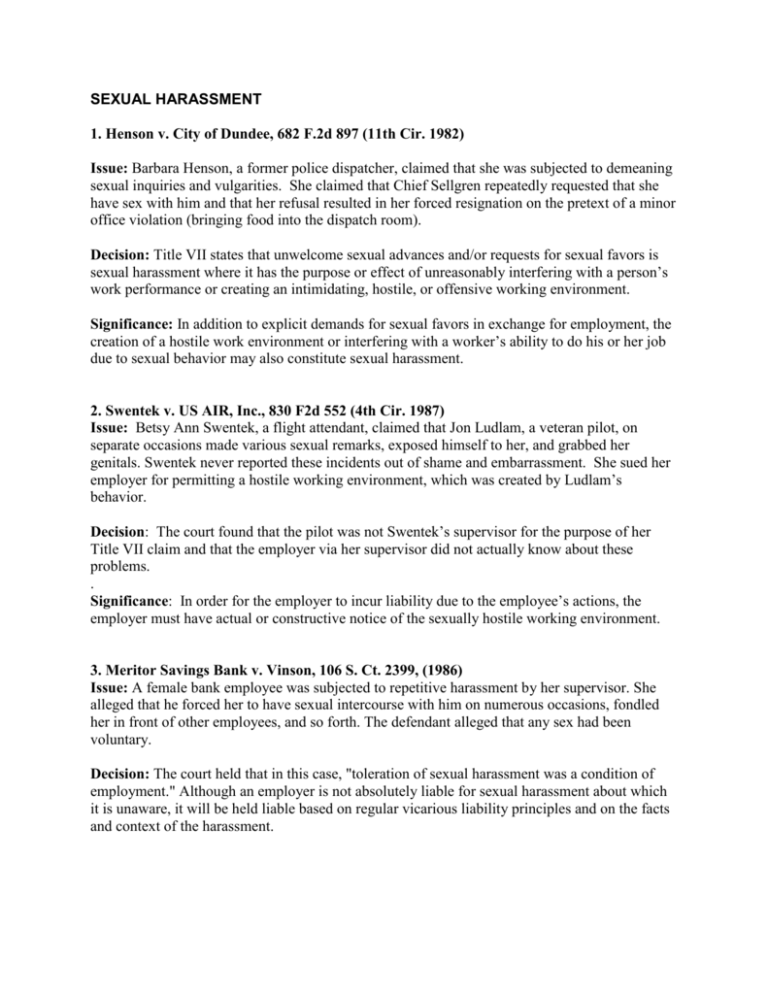
SEXUAL HARASSMENT 1. Henson v. City of Dundee, 682 F.2d 897 (11th Cir. 1982) Issue: Barbara Henson, a former police dispatcher, claimed that she was subjected to demeaning sexual inquiries and vulgarities. She claimed that Chief Sellgren repeatedly requested that she have sex with him and that her refusal resulted in her forced resignation on the pretext of a minor office violation (bringing food into the dispatch room). Decision: Title VII states that unwelcome sexual advances and/or requests for sexual favors is sexual harassment where it has the purpose or effect of unreasonably interfering with a person’s work performance or creating an intimidating, hostile, or offensive working environment. Significance: In addition to explicit demands for sexual favors in exchange for employment, the creation of a hostile work environment or interfering with a worker’s ability to do his or her job due to sexual behavior may also constitute sexual harassment. 2. Swentek v. US AIR, Inc., 830 F2d 552 (4th Cir. 1987) Issue: Betsy Ann Swentek, a flight attendant, claimed that Jon Ludlam, a veteran pilot, on separate occasions made various sexual remarks, exposed himself to her, and grabbed her genitals. Swentek never reported these incidents out of shame and embarrassment. She sued her employer for permitting a hostile working environment, which was created by Ludlam’s behavior. Decision: The court found that the pilot was not Swentek’s supervisor for the purpose of her Title VII claim and that the employer via her supervisor did not actually know about these problems. . Significance: In order for the employer to incur liability due to the employee’s actions, the employer must have actual or constructive notice of the sexually hostile working environment. 3. Meritor Savings Bank v. Vinson, 106 S. Ct. 2399, (1986) Issue: A female bank employee was subjected to repetitive harassment by her supervisor. She alleged that he forced her to have sexual intercourse with him on numerous occasions, fondled her in front of other employees, and so forth. The defendant alleged that any sex had been voluntary. Decision: The court held that in this case, "toleration of sexual harassment was a condition of employment." Although an employer is not absolutely liable for sexual harassment about which it is unaware, it will be held liable based on regular vicarious liability principles and on the facts and context of the harassment. Significance: A court will not demand that an employer be aware of a hostile work environment in order to be found liable when the inappropriate actions are committed by an employee in a supervisory role. 4. Oncale v. Sundowner Offshore Services Inc., 118 S.Ct. 998 (1997) Issue: Oncale was subjected to “sex-related, humiliating actions” perpetrated by the crane operator and driller who had supervisory power over him. Oncale registered a complaint and quit immediately for fear of being raped. Decision: The U.S. Supreme Court extended the federal statute’s protection to include harassment to men, which includes a case where a man is harassing another man. The court claimed that no wording in the statute states that only women are protected from harassment. Significance: In addition to the extension of the federal statue, it is also noteworthy that the court recognizes that all facts have to be viewed in context. What may be harassment in one context could be customary in another.

